Learn all your scales with this interactive scale helper page Covers major and minor (harmonic melodic and natural) in all common keys and using treble, bassThe minor scale bass is also called the natural minor scale because this is how we differentiate it from other minor scales such as the harmonic minor or melodic minor The smaller scale is degree VI of the larger scale so it will also have another name which is aeolian mode We are going to take the name natural minor scale but these are more4 Gsharp minor key signature has 5 sharps Related links Gsharp natural minor key signature, G#, G# natural minor scale More minor scales G# harmonic minor scale, G# melodic minor scale Other scales G# major scale, G# chromatic scale, G# major pentatonic scale, G# blues scale

Minor Scales Natural Vs Harmonic Vs Melodic Piano Theory Exercises
G sharp melodic minor scale ascending and descending bass clef
G sharp melodic minor scale ascending and descending bass clef-The Melodic Minor scale is different because when we go up the scale we use one pattern and when we go down the scale we use another The ascending pattern is WHWWWWH The descending pattern is the Natural Minor Scale WHWWHWW Here are the ascending and descending patterns for the Melodic Minor scale starting on FThe scale displayed with its numeric formula and scale degrees The G Major consists of seven notes It can be described in steps as a formula which is written as whole step, whole step, half step, whole step, whole step, whole step, half step from the first note to first note in the next octave G Major scale tablature for fourstring bass




G Melodic Minor Scale Youtube
On the descending side of the scale, starting from that last A note, we naturalize both the sixth and seventh note names, which in this case brings us back to our original notes, F and G This won't always be the case, as the notes won't always be nonaccidentals Using both sides, we come up with an A melodic minor scale that looks like The Basics The Piano Keyboard Musical Note Names The Middle C Note The Staff Treble Clef (Gclef) Bass Clef (Fclef) The Grand Staff Note Duration Rest Duration Measures Time Signature Dotted Notes Tied Notes Accidentals Half Step & Whole Step Sharps & Flats Double Sharps & Double Flats Enharmonic Notes Key Signatures Relative Minor Scales The Circle ofMinor scales sound different from major scales because they are based on a different pattern of intervalsJust as it did in major scales, starting the minor scale pattern on a different note will give you a different key signature, a different set of sharps or flatsThe scale that is created by playing all the notes in a minor key signature is a natural minor scale
Example 3 A G melodic minor scale Be sure to listen to Example 3 carefully, and notice that the half and wholestep pattern of the melodic minor form of the minor scale is not the same ascending and descending In its descending form, the melodic form of the minor scale is the same as the natural form of the minor scaleRoot to 2nd=whole step, 2nd to 3rd=whole step, 3rd to 4th=half step, 4th to 5th=whole step, 5th to 6th=whole, 6th to 7th=whole, 7th to octave=half This pattern is the same in all keys, you'llClefMidiMP3Treble ClefMidiMP3This step shows the reverse descending F melodic minor scale on the piano, treble clef and bass clefThe difference between the two types of melodic minor descending variations are explained in steps 6 and 7 of the Lesson steps belowF melodic minor scale reverse descendingNoNoteEDCAbGFAudio
Harmonic Minor Scales a minor e minor b minor f# minor c# minor g # minor d # minor a minor d minor g minor c minor f minor bb minor eb minor ab minor Harmonic minor scales from sharp key signatures in the Bass clef Harmonic minor scales from flat key signatures in the Bass clef (no sharps) (1 sharp) (2 sharps) (3 sharps) (4 sharps) (5 sharps)3 Ledger lines—short lines equidistant from each other used to extend the staff above or below the written staff Clef—indicates where the pitch letter names are placed on the staff Treble clef—also called the G clef, it designates the pitch g with a lower loop Bass clef—also called the F clef, it designates the pitch f with two dots Alto clef—a specific kind of C clef, it A melodic minor scale bass clef You will want to use one finger per fret to cover the four fret range A minor or a flat minor is a minor scale based on a Heres the scale on the bass clef No sharps 1 sharp 2 sharps 3 sharps 4 sharps 5 sharps The solution below shows the c melodic minor scale notes intervals and scale degrees on the piano
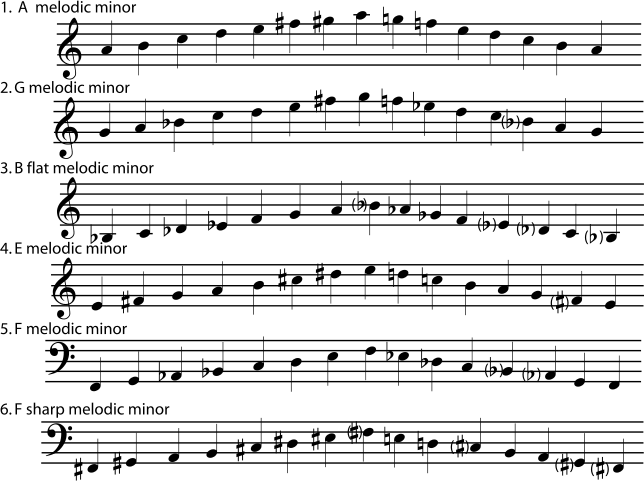



4 4 Minor Keys And Scales



Basicmusictheory Com G Sharp Melodic Minor Scale
That the natural minor and descending melodic minor scale are the same) GO TO About Minor Scales Starting on White Keys Starting on Black Keys C Minor C© Minor D Minor E¨ Minor E Minor F© Minor F Minor G© Minor G Minor B¨ Minor A Minor B Minor Minor Scales Natural, Harmonic, and Melodic Forms Margaret Denton, pianoMelodic Minor Scales I like to think of the melodic minor scale as the chameleon scale as it changes its colours The ascending scale creates more tension by sharpening the sixth and seventh steps, and the descending scale relaxes that tension by flattening the seventh and sixth stepsPerfect 8th The 8th note of the F# melodic minor scale is F# Here's the Fsharp melodic minor scale on piano, ascending Here's the F sharp melodic minor scale on the treble clef Here's the scale on the bass clef Learn major, minor, chromatic, pentatonic, blues, whole tone scales and more Learn major and minor scales in all keys




G Melodic Minor Scale Youtube




G Sharp Melodic Minor Scale 2 Octaves Right Hand Piano Fingering Figures
Salt Lake City, Utah I agree about reading, but here is another suggestion for learn scales Learn the pattern of whole and half steps;Another minor scale type is the harmonic minor scale, which can be thought of as natu ral minor with a raised or as major with lowered and 6 Min C major Scale degree c harmonic minor F (G A 13 C The third type of minor scale is the melodic minor scale, which has an ascending form and a descending formNotes in the Asharp melodic minor scale Ascending A♯, B♯, C♯, D♯, E♯, F𝄪, G𝄪 Descending A♯, G♯, F♯, E♯, D♯, C♯, B♯ Scale Formula




G Sharp Melodic Minor Scale Youtube




The Foundations Scale Steps And Scales
Melodic Minor has an Ascending Flat Median (3rd), Sharp Submediant (6th), and Sharp Leading Tone (7th), but a Descending Flat Mediant (3rd), Flat Submediant (6th), and Flat Leading Tone (7th) 1712 Example 1 Finding the TonicAflat minor is a minor scale based on A Gsharp minor, because that key has just five sharps as opposed to the seven flats of Aflat minor In some scores, the Aflat minor key signature in the bass clef is written with the flat for the F on the second line from the topG note in bass clef Here is a G note on a staff with a bass clef G descending melodic minor scale The G note as leading tone (leading note) The G note is the leading tone F double sharp is enharmonic to G because the double sharp raises the pitch by two half steps




G Major Scale Bass Clef Shakal Blog




Abrsm Natural Minor
Key Signatures and Minor Keys The key signature for a minor key includes all the sharp/flat notes from the natural minor scale – this is the same as the descending melodic minor scale For example, A minor melodic descending is AGFEDCBA There are no sharps and flats, so there are also no sharps or flats in the key signature for A minorMelodic Minor Scales The Melodic Minor Scale differs from the Natural Minor Scale by the sixth and seventh notes, which are raised one semistep This scale is kind of peculiar since it is sometimes played differently ascending and descending Jazz The sixth and seventh notes are always raised, exactly as the pictures below illustrate ThisThe Gsharp Minor Scales Here are the Gsharp Minor Scales the natural minor scale, the melodic minor scale, and the harmonic minor scale Fingerings are included Learn the scales ascending and descending First, try one octave, and then try two octaves (Eventually, you should be able to play each scale with both hands, ascending and




Study Keys Level 4



Basicmusictheory Com C Sharp Melodic Minor Scale
Also, I don't like practicing the harmonic minor scale either, because the raised 7th is for harmonic reasons only (hence the name), and the melodic minor scale with the raised 6th and raised 7th was used in order to get rid of that awkward jump when playing melodically (hence theG melodic minor scale The Solution below shows the G melodic minor scale notes, intervals and scale degrees on the piano, treble clef and bass clef The Lesson steps then describe how to identify the G melodic minor scale note interval positions, choose the note names and scale degree names For a quick summary of this topic, have a look at Melodic minor scale F Major Scale All About Music Theory Com G Sharp Minor Facts For Kids Music Theory For Non Music Majors Ii Review The Natural And Melodic A Flat Minor Learn The Basics Chromatic Scale All Keys G Flat Major Scale 2 Octaves Left Hand Piano Fingering Figures You have just read the article entitled G Flat Major Scale Descending
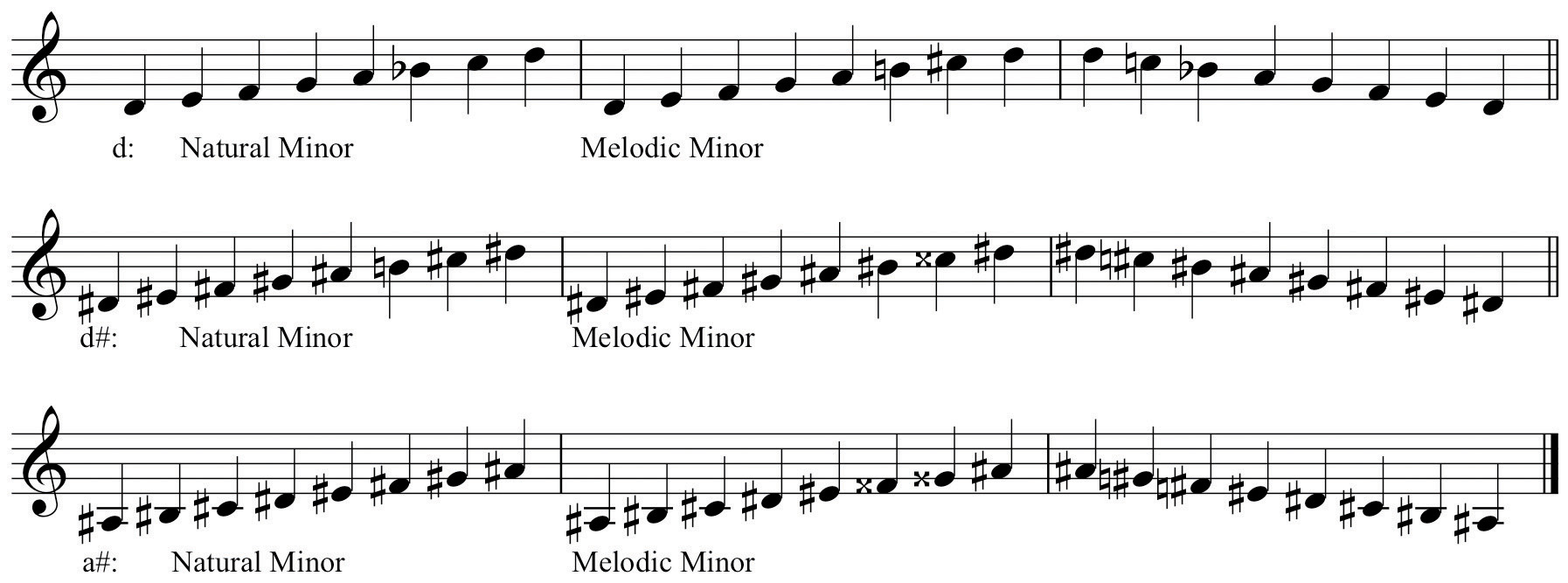



The Foundations Scale Steps And Scales




The Minor Scales Music Theory Academy
Gsharp melodic minor scale The Solution below shows the G# melodic minor scale notes, intervals and scale degrees on the piano, treble clef and bass clef The Lesson steps then describe how to identify the Gsharp melodic minor scale note interval positions, choose the note names and scale degree names For a quick summary of this topic, have a look at Melodic minor scaleHere's the G harmonic minor scale on the treble clef Here's the G harmonic minor scale on the bass clef G Melodic Minor Scale Let's now take a look at the melodic minor scale For this scale, you raise the sixth and seventh notes by a half step as you go up the scale and then return to the natural minor as you go down the scale Details and examples of all scales for ABRSM grade 3 music theory bass and treble clef, ascending and descending Major, minor melodic and minor harmonic included eg F# minor scale



C Sharp Minor Scale Natural Harmonic And Melodic



Http Static1 Squarespace Com Static 521bb4bee4b093a8696f53f1 T 561af3efe4b0ae8c3b9f865f Int1 3s E Natural Melodic And Harmonic Minor Pdf
G Major scale on the stave with note names Ascending and descending, one octave and two octaves Also see G Major Arpeggio on the stave, and view the notes on the pianoThe key signature of G Major has only one sharp (1♯) G Major scale in most common clefs Here is G major scale in most common clefs treble clef, bass clef, tenor clef and alto clef G Major scale in treble clef (Gclef) Below is the F major scale in treble clef G Major scale in bass clef Below is the F major scale in bass clefA Flat Melodic Minor Scale Bass Clef More often pieces in a minor mode that have a s pitch as tonic are notated in the enharmonic key g minor because that key has just five sharps as opposed to the seven flats of a minor In some scores the a minor key signature in the bass clef is written with the flat for the f on the second line from the top
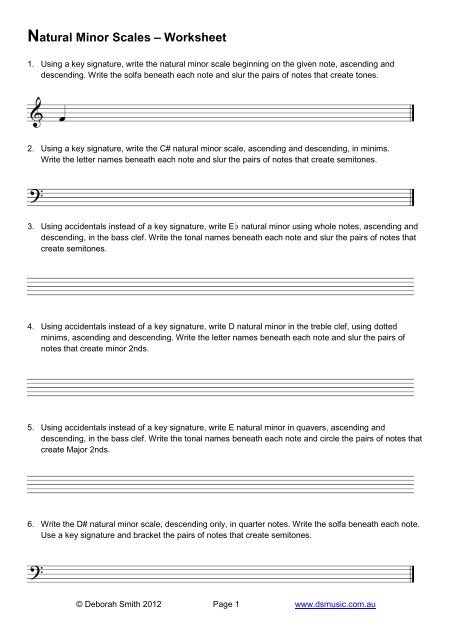



Natural Minor Scales Worksheet Deborah Smith Music



Basicmusictheory Com F Sharp Melodic Minor Scale
A scale is a series of notes going up (ascending) or down (descending) For Grade 5 Music Theory, you need to know about diatonic scales and chromatic scales Diatonic Scales A diatonic scale has 7 notes and each of those notes is given different letter name, AG There are 3 main types major, minor harmonic, and minor melodic (There is also another type of minor "natural minorC# Harmonic Minor scale on the stave with note names Ascending and descending, one octave and two octaves Also see C# Harmonic Minor Arpeggio onTwo Octave Scales 145 E Natural Minor 2 2 2 1 1 1 2 1 2 1 1 1 151 156 162 167 172 177 O 1 1 4 1 0 11 401 4 4 1 1 1 0 1 1 041 0




Abrsm Natural Minor




Basicmusictheory Com G Sharp Harmonic Minor Scale
Melodic minor scales from sharp key signatures in the Bass clef Melodic minor scales from flat key signatures in the Bass clef (no sharps) (1 sharp) (2 sharps) (3 sharps) (4 sharps) (5 sharps) (6 sharps) (7 sharps) (1 flat) (2 flats) (3 flats) (4 flats) (5 flats) (6 flats) (7 flats) Notice that each scale uses the accidentals used inBass Players Read Bass Clef The symbol of the Bass Clef is derived from the old German way of writing "F" The two dots on the right of the bass clef symbol surround the line on which "F" pitch is written The notes above are all natural however any of this notes can be raised or lowered a half step by placing a accidental, sharp




The Best 24 D Sharp Melodic Minor Scale Ascending And Descending Bass Clef
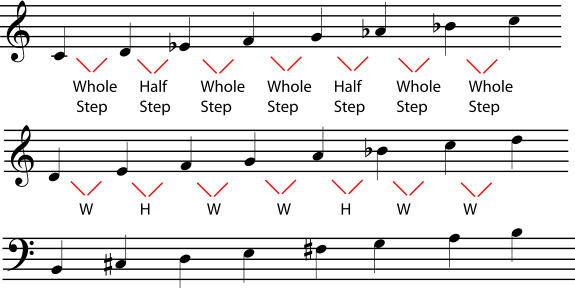



4 4 Minor Keys And Scales




Minor Scales Natural Vs Harmonic Vs Melodic Piano Theory Exercises




Study Keys Level 5




Music Scales The Cello Companion



F Sharp Minor Scale Natural Melodic And Harmonic




The Best 24 D Sharp Melodic Minor Scale Ascending And Descending Bass Clef
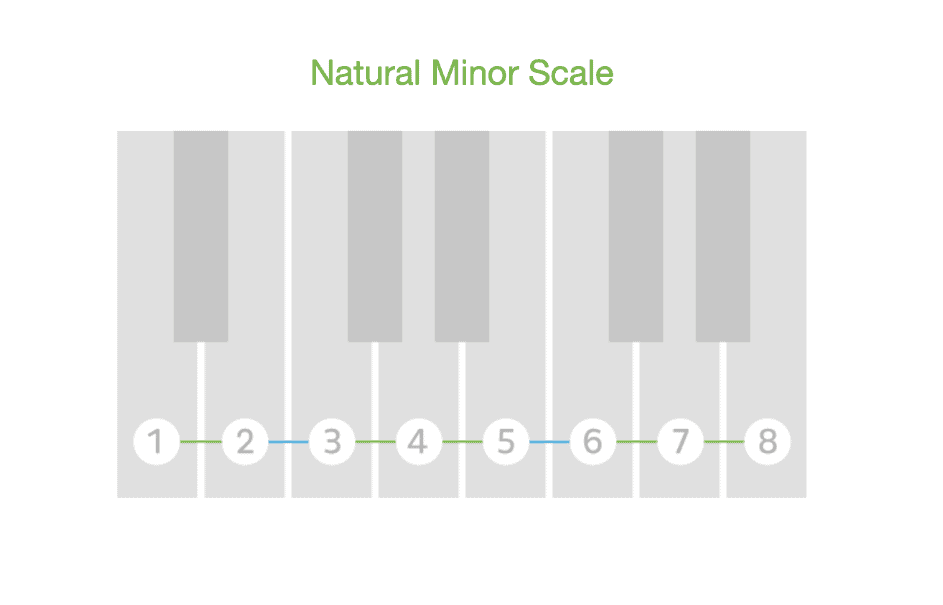



Understanding Piano Scales Major Minor And Blues Scales Updated 21




The Minor Scales Music Theory Academy




Minor Scales Natural Vs Harmonic Vs Melodic Piano Theory Exercises



G Melodic Minor Scale For Piano



Http Www Yeodoug Com Resources Young Players Linda Yeo Scales Pdf




Learn How To Read Sheet Music Notes For Music Take Note



Basicmusictheory Com G Sharp Melodic Minor Scale




Basicmusictheory Com G Flat Melodic Minor Key Signature




Minor Scales Scale Degrees And Key Signatures Open Music Theory




Music Theory Why Are There 3 Minor Scales ron Searle




Songs That Use The Melodic Minor Scale Musictheory



Http Static1 Squarespace Com Static 521bb4bee4b093a8696f53f1 T 561af3efe4b0ae8c3b9f865f Int1 3s E Natural Melodic And Harmonic Minor Pdf



G Sharp Melodic Minor Scale For Bass Guitar



F Sharp Minor Scale Natural Melodic And Harmonic




Minor Scales Scale Degrees And Key Signatures Open Music Theory




Diatonic Chords In Minor



Basicmusictheory Com G Sharp Melodic Minor Scale




View 29 Bass Clef D Melodic Minor Scale Ascending And Descending
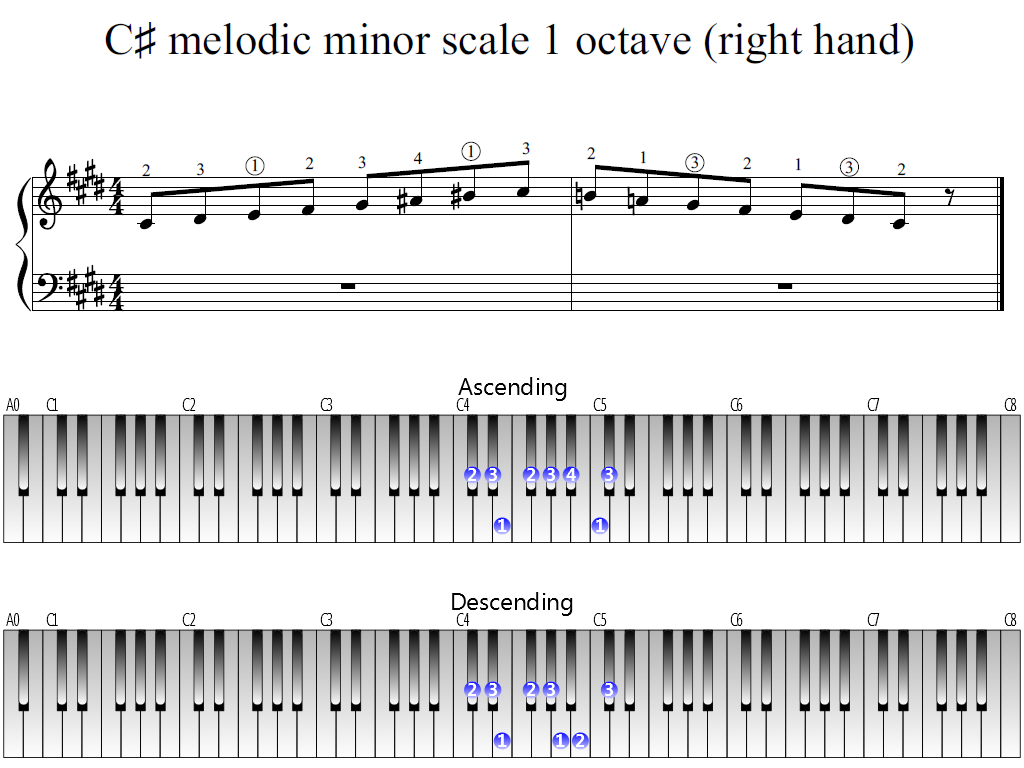



C Sharp Minor Piano
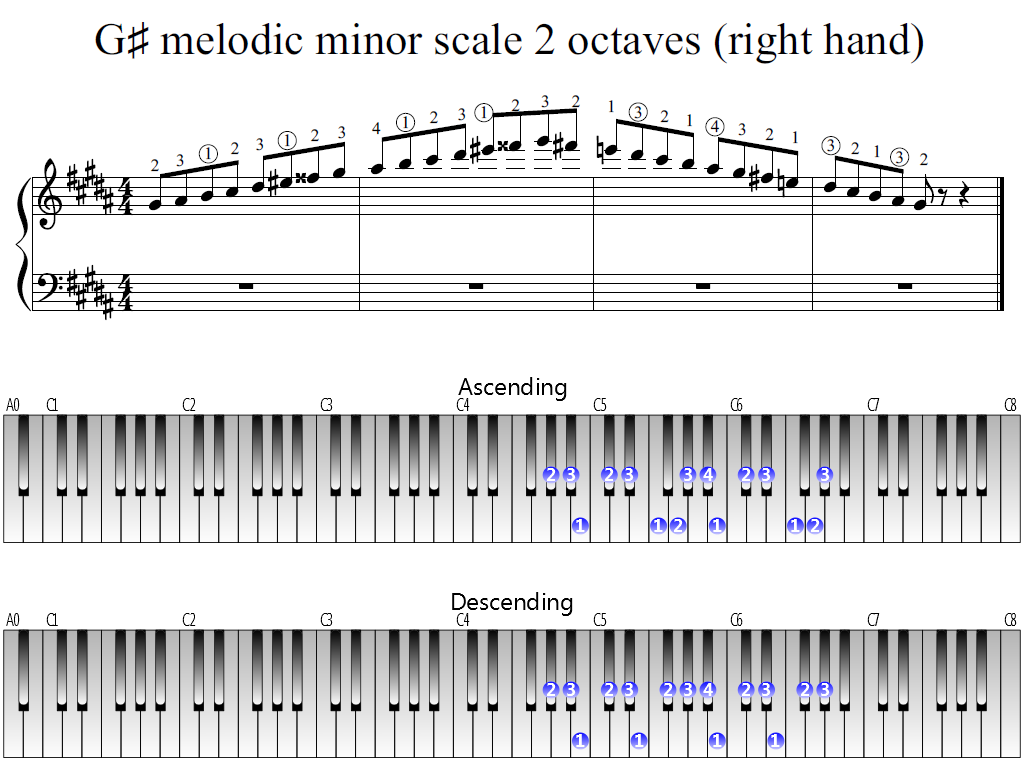



G Sharp Melodic Minor Scale 2 Octaves Right Hand Piano Fingering Figures
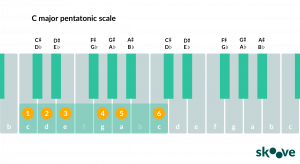



Understanding Piano Scales Major Minor And Blues Scales Updated 21



F Sharp Minor Scale Natural Melodic And Harmonic
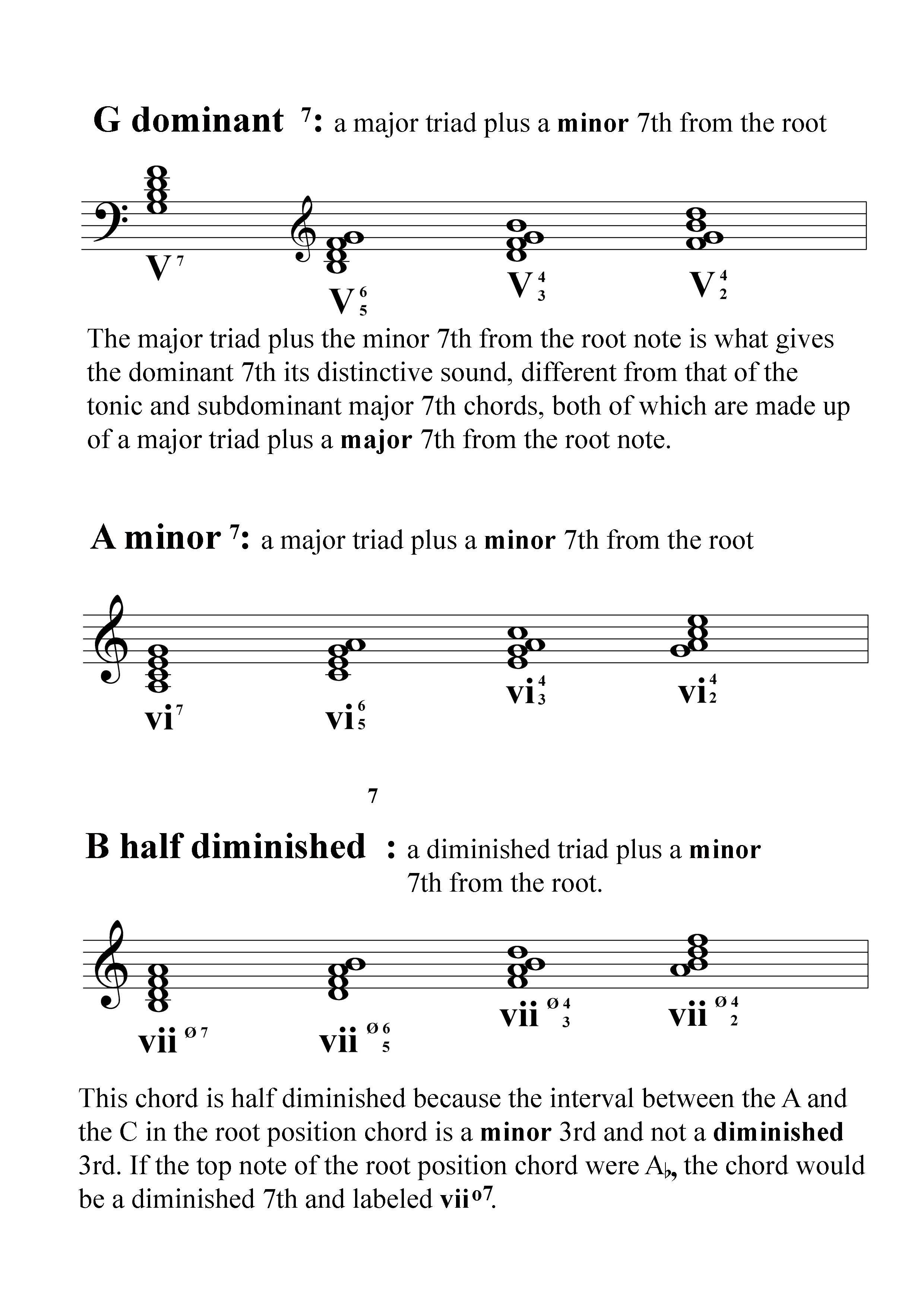



Music Scales The Cello Companion
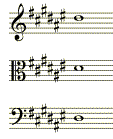



Dolmetsch Online Music Theory Online Minor Scales



Guitar Eku Edu Sites Guitar Eku Edu Files Files Eku music theory study guide 1 Pdf



1



The E Flat Minor Scale Eb Minor Scales On Piano Treble And Bass Clef Natural Melodic Harmonic Minor Scale
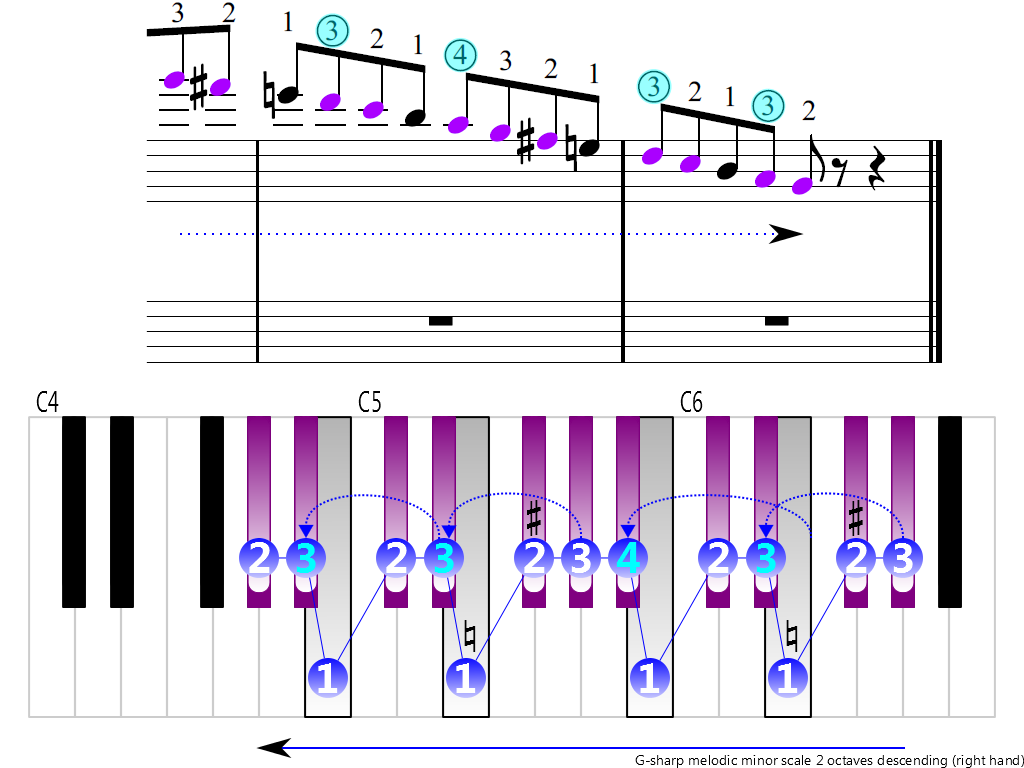



G Sharp Melodic Minor Scale 2 Octaves Right Hand Piano Fingering Figures
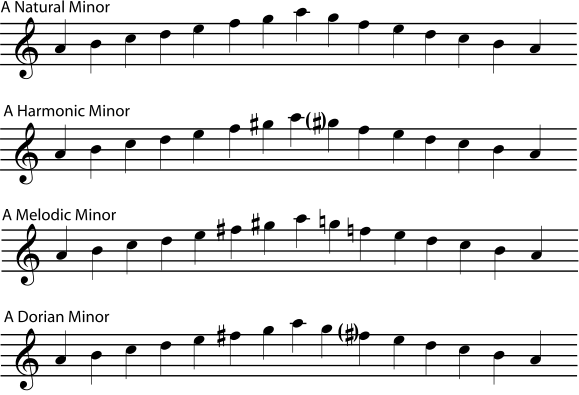



4 4 Minor Keys And Scales
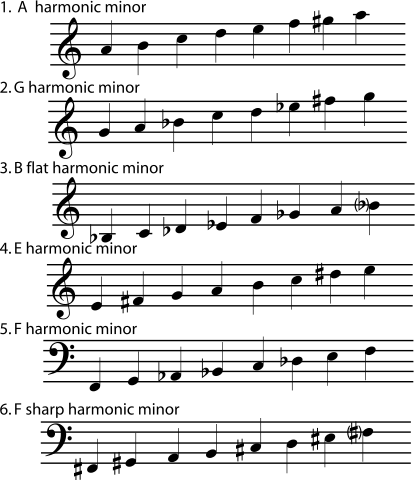



4 4 Minor Keys And Scales




The Minor Scales Music Theory Academy
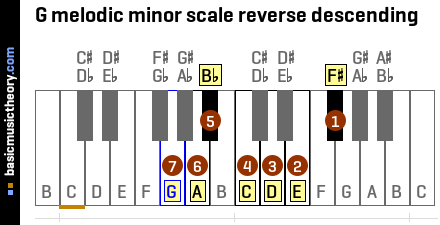



Basicmusictheory Com G Melodic Minor Scale
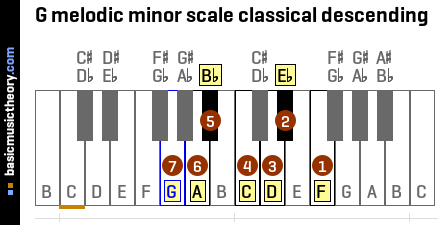



Basicmusictheory Com G Melodic Minor Scale



G Sharp Melodic Minor Scale For Bass Guitar
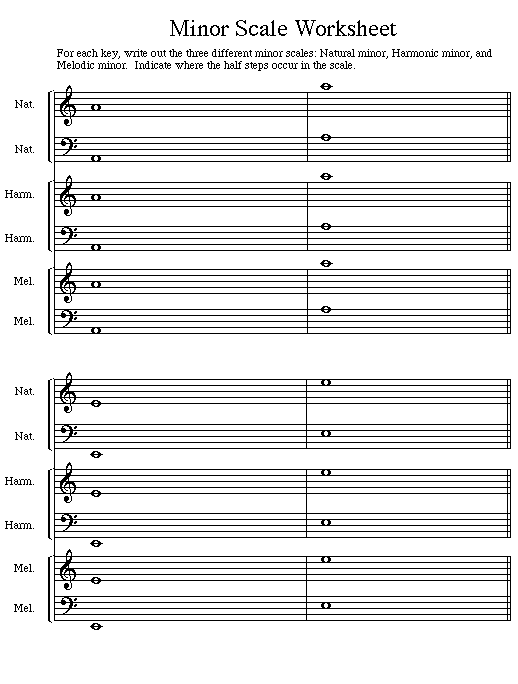



Lecture 6 Minor Scales




Why Does The Melodic Minor Scale Turn Into Natural Minor When Descending Music Practice Theory Stack Exchange




Minor Scales Scale Degrees And Key Signatures Open Music Theory




Basicmusictheory Com D Sharp Melodic Minor Scale
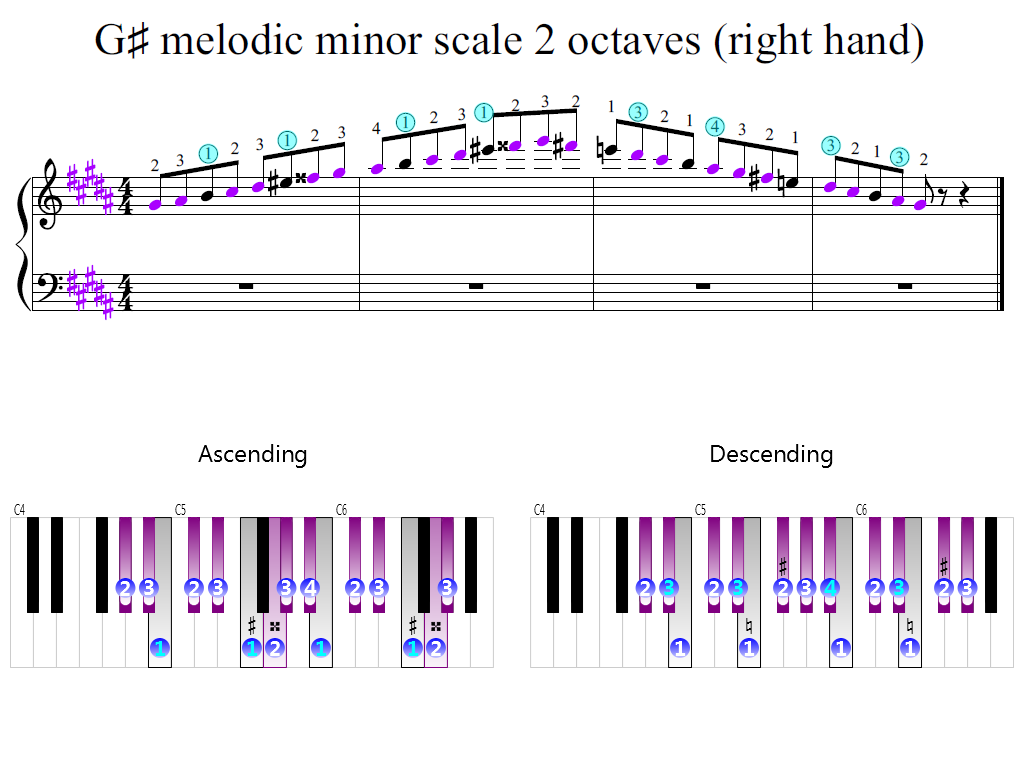



G Sharp Melodic Minor Scale 2 Octaves Right Hand Piano Fingering Figures
/200413959-004-56a68e105f9b58b7d0e38848.jpg)



The Three Types Of Minor Scales And How To Form Them




The Minor Scales Music Theory Academy




The 5 Types Of Bebop Scale Hello Music Theory



Basicmusictheory Com G Sharp Melodic Minor Scale
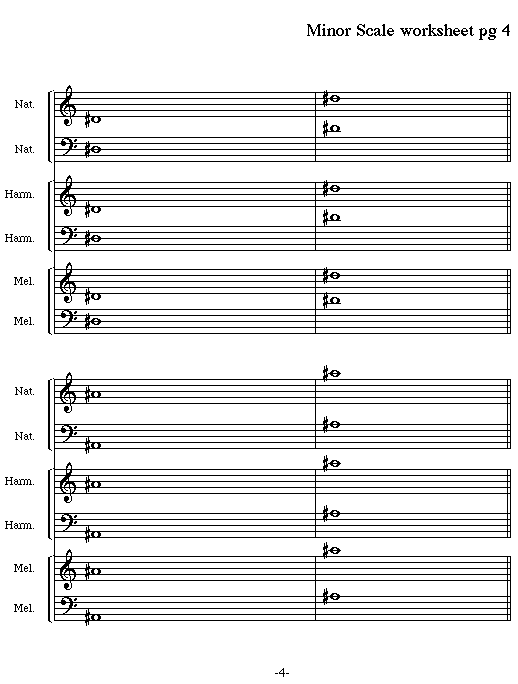



Lecture 6 Minor Scales




Basicmusictheory Com D Sharp Melodic Minor Scale



3




G Major Scale Ascending And Descending Bass Clef Shakal Blog




Study Keys Level 2



Why The Ascending Form Of The Melodic Minor Scale Differs From Its Descending Form Hear And Play Music Learning Center




Basicmusictheory Com D Sharp Melodic Minor Scale




Study Keys Level 2




G Sharp Harmonic Minor Scale Reminder Video Youtube



Music Theory




Why The Ascending Form Of The Melodic Minor Scale Differs From Its Descending Form Hear And Play Music Learning Center




Theory Blog Melodic Minor Scale



The G Minor Scale Natural Harmonic And Melodic Notes Chords And More




Basicmusictheory Com G Sharp Melodic Minor Scale



8 Major Keys And Key Signatures Fundamentals Function And Form



B Flat Minor Wikipedia
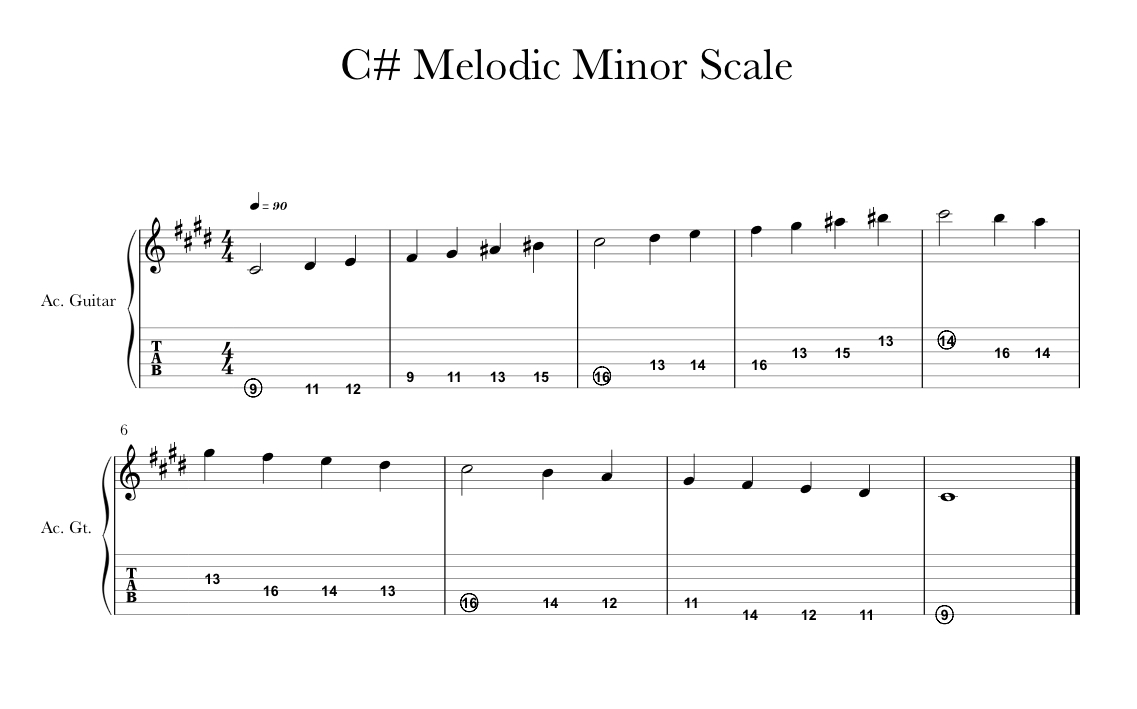



Minor Scales Sabetmusic



3



F Sharp Minor Scale Natural Melodic And Harmonic




E Minor Wikipedia




Understanding Minor Scales For The Violin Meadowlark Violin Studio



G Sharp Melodic Minor Scale For Bass Guitar




Theory Blog Melodic Minor Scale



C Sharp Minor Scale Natural Harmonic And Melodic




Basicmusictheory Com G Flat Natural Minor Scale




G Music Note Music Theory
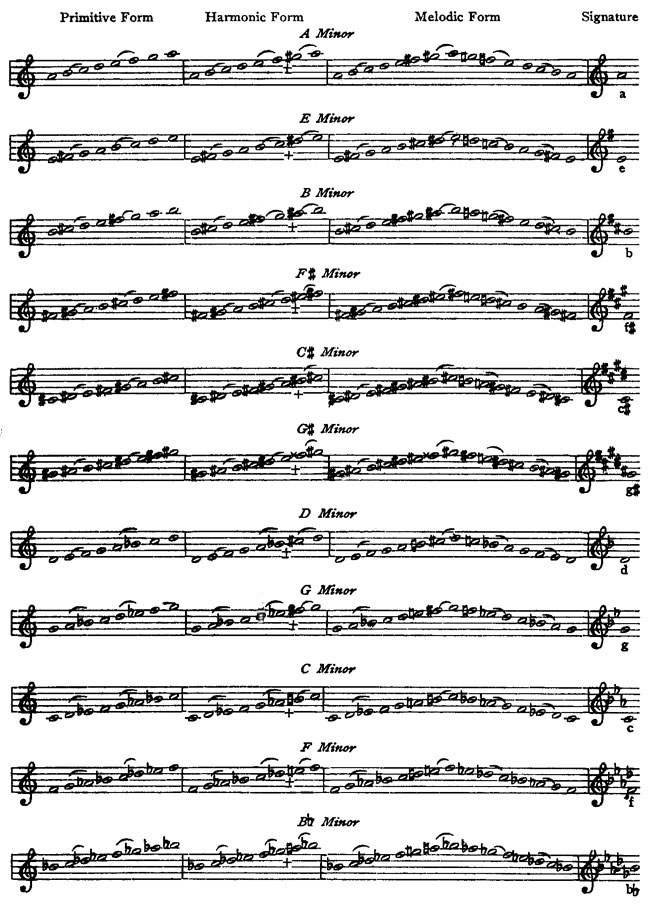



Scales Continued The Guitar Journal




Minor Scales Natural Vs Harmonic Vs Melodic Piano Theory Exercises




Basicmusictheory Com F Double Sharp Melodic Minor Scale




Minor Key Signatures




6 Scales




File G Sharp Melodic Minor Scale Ascending And Descending Png Wikimedia Commons




Study Keys Level 5



3
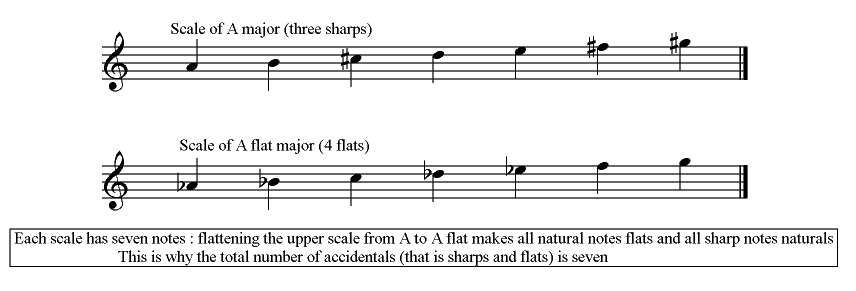



Dolmetsch Online Music Theory Online Minor Scales




Basicmusictheory Com F Double Sharp Melodic Minor Scale



0 件のコメント:
コメントを投稿